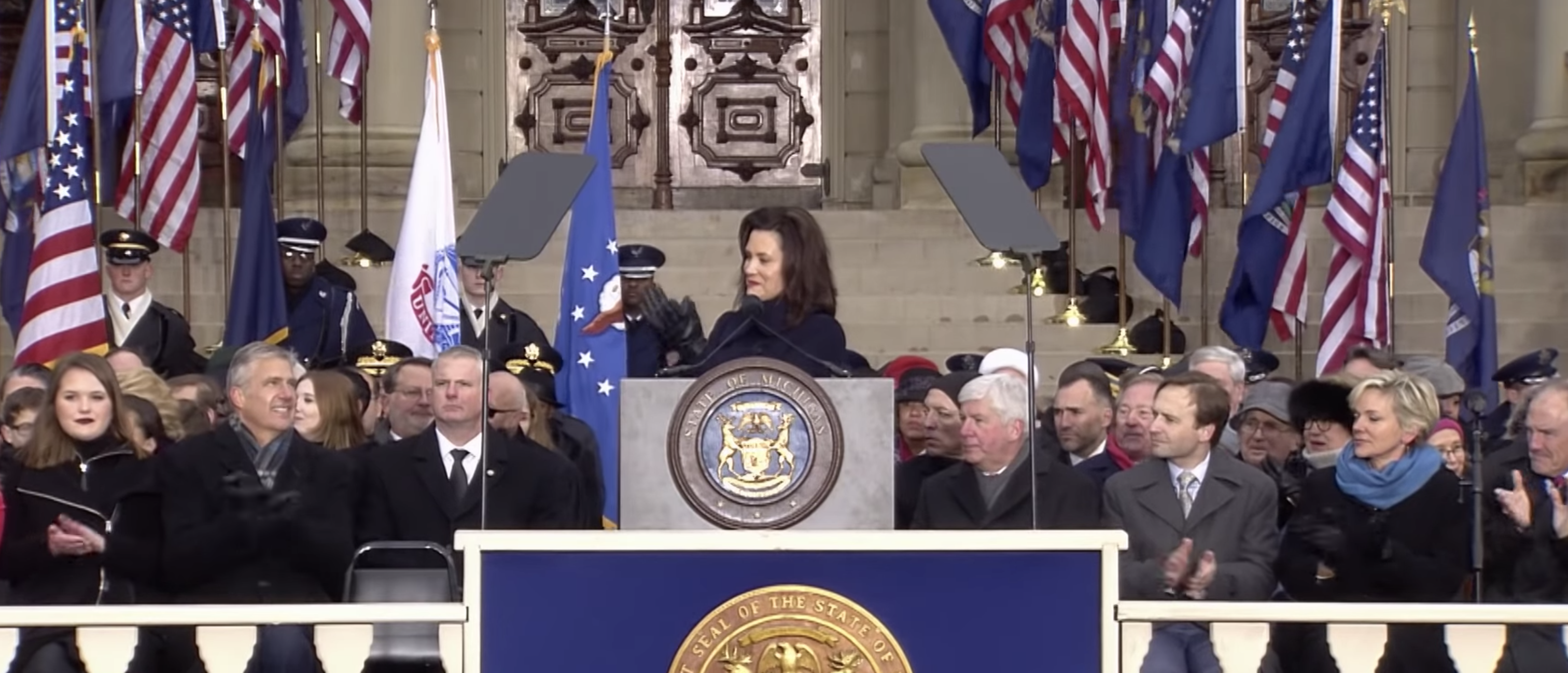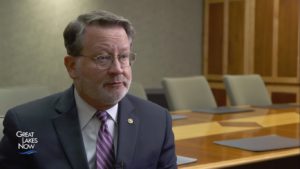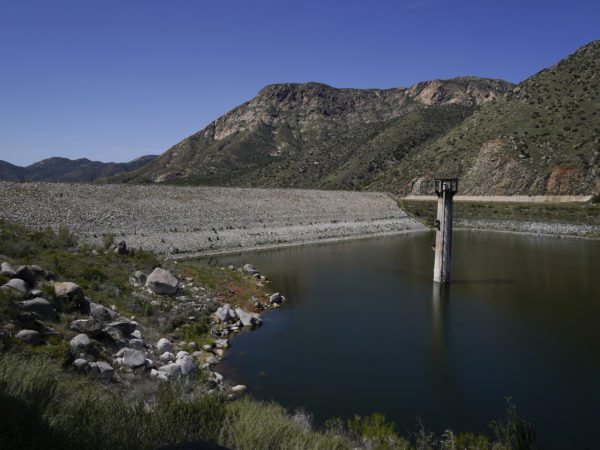
After a video of the Enbridge Line 5 oil pipeline taking damage from an anchor was recently released, Michigan Gov. Gretchen Whitmer has directed the Department of Natural Resources to issue an emergency order on the use of anchors. The order requires large vessels to verify no anchors are dragging before passing through the Straits of Mackinac.
“I remain committed to getting the oil out of the water as quickly as possible, but in the meantime, these preventative actions will help to protect our most significant ecological and economic resource,” Whitmer said in a statement, echoing her long-standing position on Line 5.
The video, from an April 2018 incident, was made public earlier this month and appears on U.S. Sen. Gary Peters’ YouTube page.
The incident “happened more than a year ago now, so nothing’s really changed from our perspective,” Enbridge spokesperson Ryan Duffy told Great Lakes Now.
“We did repair and reinforce the impacted areas in the spring, early summer of last year, and things have been operating normally since then,” he said. “Our focus in the future is really the Line 5 tunnel project because that would eliminate the possibility of future anchor damage.”
Duffy also said that Enbridge provided funding for cameras for the U.S. Coast Guard to provide them with “real-time monitoring capabilities for all the ship traffic going through the Straits.”
Whitmer also this week wrote to the U.S. Coast Guard requesting that it create a rule similar to Michigan’s on anchor dragging to cover foreign ships, over which Michigan has no authority.
A U.S. Coast Guard investigation of the 2018 anchor incident is ongoing.
“The investigation has been completed at the local (Great Lakes) level and was forwarded to the headquarters in Washington,” spokesperson Chief Petty Officer Bobby Nash told Great Lakes Now.
Nash would not estimate when the investigation would be complete and couldn’t comment on Whitmer’s request for an anchor rule as he had not seen the letter.
Whitmer’s office did not respond to specific questions about the timing of the emergency rule directive.
Instead spokesperson Tiffany Brown said the action is “part of Governor Whitmer’s continued effort to go above and beyond in protecting the state’s Great Lakes.”
In late March, Whitmer ordered all work stopped on a Line 5 replacement plan after receiving a legal opinion from Attorney General Dana Nessel that the law that allowed the pipeline was unconstitutional. Whitmer reopened talks with Enbridge in mid April.
The plan, which involved encasing the pipeline in a tunnel, was passed by the Michigan legislature and signed by former Gov. Rick Snyder in December, just before Whitmer took office.
Federal slow walk?
Michigan Sen. Gary Peters has been working on pipeline safety issues and held field hearings on Line 5 in Traverse City last year.
Peters ratcheted up the pressure this week on the Coast Guard to complete its anchor strike investigation in a statement to Great Lakes Now.
“I urge the Coast Guard to swiftly conclude their investigation into last year’s anchor strike and to release the investigation’s results publicly, given Michiganders understandable concerns,” Peters said in the statement.
“An oil spill in the Great Lakes would have catastrophic consequences to Michigan’s environment and economy. Michiganders deserve to know the full extent of the damage to Line 5 from last year’s anchor strike – because there’s simply too much at stake,” he said.
Peters was instrumental in securing the release of the 2018 video of the damage to Line 5 caused by the anchor strike.
Oil pipeline activist Beth Wallace said she “welcomes Whitmer’s emergency order on anchors as an important step in the process.”
But she wants more oversight from the federal government.
“I’m disappointed in the federal oversight of Line 5,” Wallace said. “In these incidents where there has been significant damage to Line 5, federal oversight agencies need to be more diligent on transparency.”
Wallace has tracked oil pipelines for the National Wildlife Federation in Ann Arbor since 2013.
—————————–
Natasha Blakely contributed to this report.




